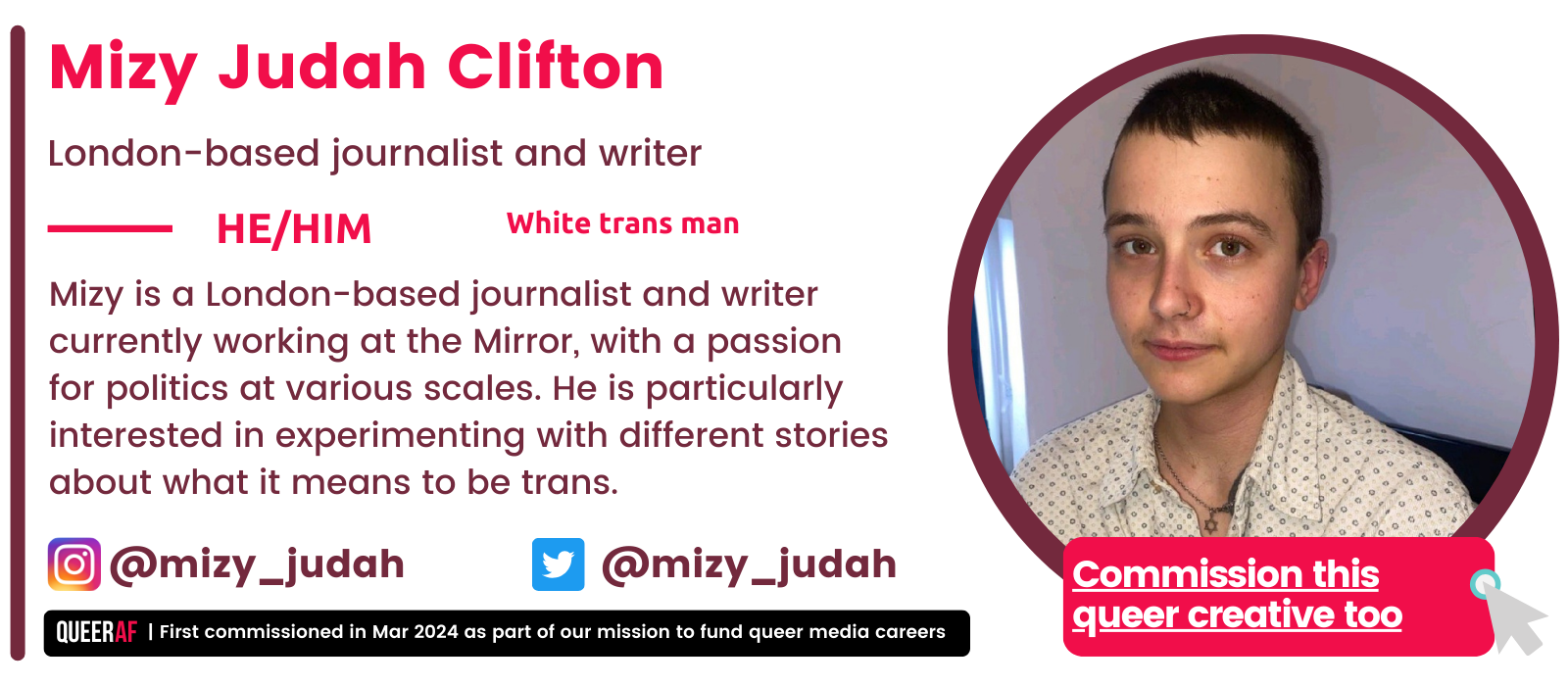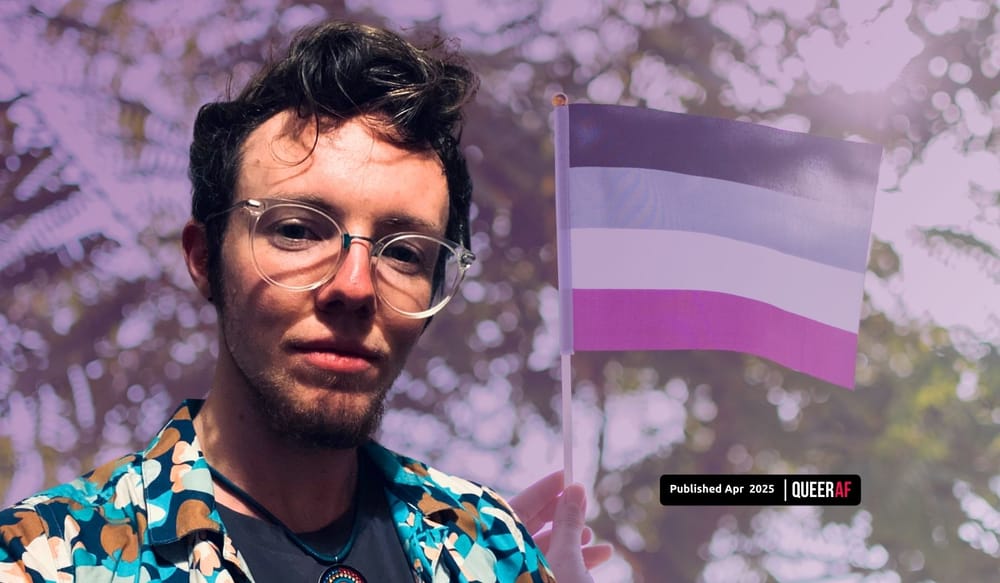
The testimonies of those who detransition are so often weaponised against the trans community.
People who do detransition only make up a tiny percentage of transgender people - with the primary reason for many being societal pressures.
Anti-trans rhetoric paints ‘detransitioners’ as ‘whistleblowing, duty-bound crusaders on a moral mission’. So-called ‘detransitioners’ with anti-trans views, such as Chloe Cole and Laura Becker, about whom many Daily Mail articles have been triumphantly penned, like to falsely present themselves as punching up against some all-powerful ‘lobby’.
In reality they are part of an unholy alliance hell-bent on agitating against threats to the cisgender status quo - largely by attacking the marginalised transgender community.
Approaching this topic is made more difficult by the fact that ‘detransition’ is itself a fuzzy concept easily co-opted by these reactionary interests.
Trans people’s wariness about seriously engaging with those who detransition is understandable given the high profile of certain so-called ‘detransitioners’.
But just as the cis/trans binary often obscures more than it reveals, so too does the trans/detrans binary.
“Not once in my time after I said ‘I’m going to detransition’, have I thought, ‘I’m now a cis woman’”, Lucy Kartikasari, a 27-year-old detrans woman from the Netherlands, tells QueerAF.
Lucy, who uses she/he/they pronouns, started socially transitioning when she was 12 and began medical transition at 16.
After “blossoming” as a trans man for years, Lucy was “pushed into a more feminine role” while in a relationship with his ex-boyfriend, but realised he “didn’t mind being one of the girls”.
Their “lightbulb” moment came after watching the multiverse epic Everything Everywhere All At Once.
“That idea of the different paths you take in life, taking you to different worlds and universes, got me thinking about my own life and what I’ve been experiencing over time. Like this mounting malaise in the background of ‘something’s off,’” she recalls.
And Lucy’s particular path – having a hysterectomy at 19 to remove their uterus – means he is now undergoing oestrogen replacement therapy.
“My material reality is so much closer to that of a trans woman than it is a cis woman. So this notion that people who detransition are automatically cis is not accurate. It doesn’t reflect reality for a lot of people”.
Whipping up moral panic over ‘mutilation’ and ‘sterilisation’ is now a familiar tactic in the anti-trans playbook.
Those who detransition are also affected by this transphobic and ableist rhetoric – and find their stories (and bodies) seized on as cautionary tales about the ‘dangers’ of not reconciling oneself soon enough to the apparent intractability of biological sex.
Lucy has made peace with her journey in a different way.
“I have built narratives for myself that worked for me and helped me feel at home in my body. It doesn’t matter that other people think I’m disfigured or maimed or whatever word they want to use to describe me,” Lucy explains.
This ties to how Lucy feels about regret, a thorny issue that is wrongly seen as the Achilles’ heel of the battle for gender-affirming care.
The only thing Lucy has regrets about is his top surgery revision.
“That’s a very intimate and painful thing to cope with. Showing my scars to other people is always a big hurdle for me to clear. At the same time, I’ve also learned to live with it and realise that this is just a part of me now. I can get scar treatments – I’m trying to raise funds to do so. But I wouldn’t be who I am today without them as well”.
Some detrans people want to shield others from regret by refusing them the freedom to decide in the first place.
For Lucy, an informed consent model of healthcare is still the answer, precisely because the current system – of lengthy waiting lists and diagnoses – “does not allow for doubt or exploration or trying to figure yourself out”.
The freedom to transition – in whatever form that takes – implies an open path, the ability to make decisions and be burdened by their consequences. That can be terrifying. Rather than “facts and logic”, the primary emotion driving anti-trans policy seems to be fear.
Equally, what’s often left out of the story is that most studies find a less than 2% regret rate for gender-affirming surgeries, compared to, say, knee surgery, which can see rates as high as 30%. And where there is detransition, studies show it is often due to family pressures, or out of fear of the transphobia in society, rather than individual regret.
We should extend compassion and kindness to all those who ‘detransition’, in whatever form that takes. But we should also claim back the conversation from those who hijack it to do us harm, whether in good faith or bad.
Considering the parallels between ‘trans’ and ‘detrans’ experiences helps us to build solidarity beyond the trans/detrans binary, in the service of an alternative kind of politics that is concerned, above all, with freedom.

Get the Queer Gaze in your inbox each week with our free weekly newsletter or pitch to write an edition for us now.
QueerAF and here to change the media
Queer lives are inherently political.
Clampdowns by the Art Council on political art, the social media platform formerly known as Twitter and now Meta's Instagram and Threads on news and politics point to a bigger picture.
Clearly, protecting profits are the only thing that’s important to politicians, media and now some of the UK's most respected institutions.
We're a not-for-profit exactly for this reason. We raise funds so we can reinvest it into content that we know counts - not for clicks.
Behind the scenes of this weekly newsletter, we're also working across the media as an advocacy group to change the way the newsroom looks, and acts - to make the country better for all LGBTQIA+ people.
In the words of respected Trans+ journalist Jess O'Thomson, QueerAF is:
"One of the best publications doing queer journalism I know of"
If you can, consider supporting us. You can join the community of QueerAF members from just £4 a month.











